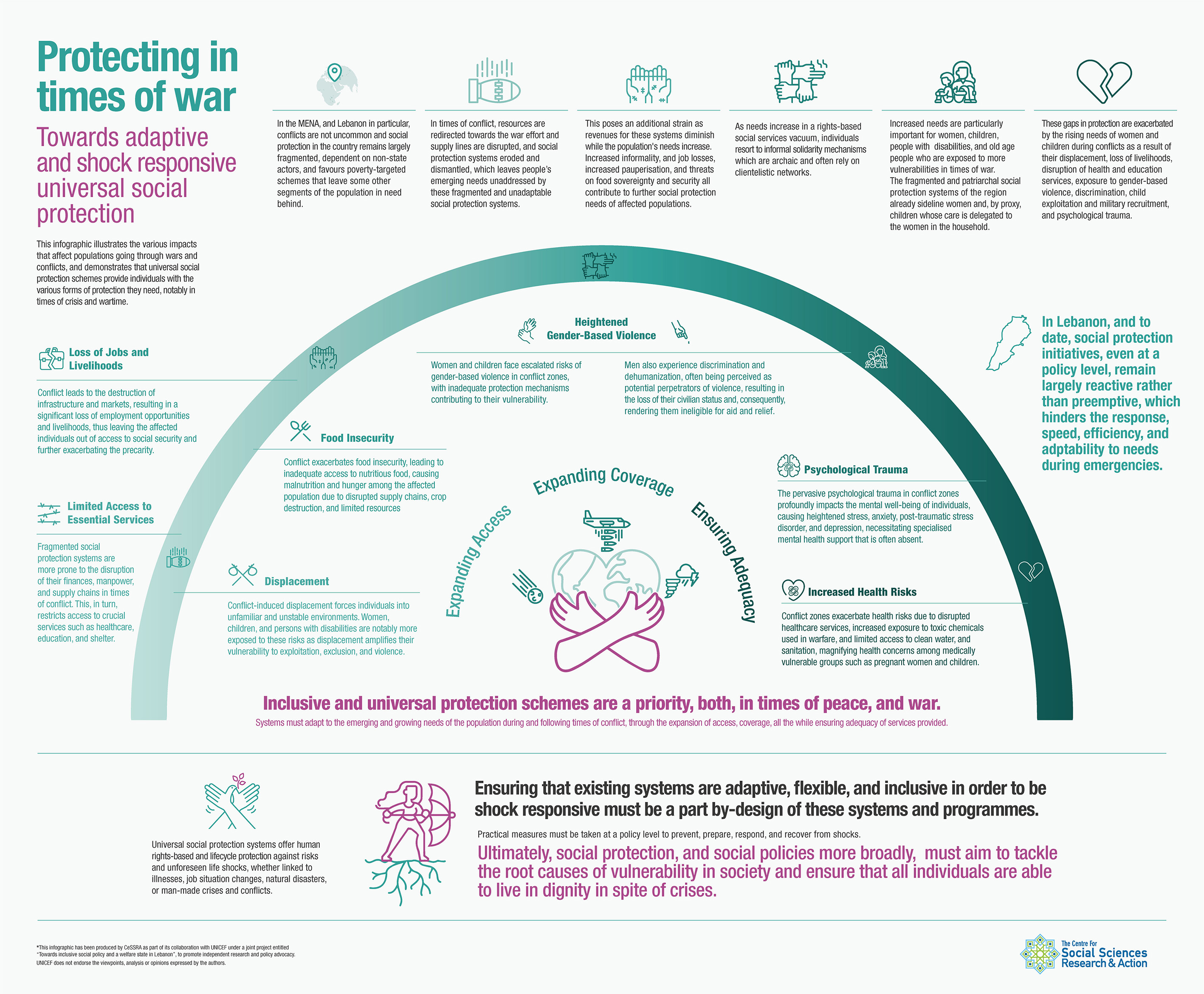Towards adaptive and shock responsive universal social protection. Protecting in times of war.
In the MENA, and Lebanon in particular, conflicts are not uncommon and social protection remains largely fragmented, dependent on non-state actors, and favours poverty-targeted schemes that leave some segments of the population in need behind. In times of conflict, resources are redirected towards the war effort and supply lines are disrupted, and social protection systems eroded and dismantled, which leaves people’s emerging needs unaddressed by these fragmented and unadaptable social protection systems. This poses an additional strain as revenues for these systems diminish while the population's needs increase. Increased informality, and job losses, increased pauperisation, and threats on food sovereignty and security all contribute to further social protection needs of affected populations.
As these needs increase in a rights-based social services vacuum, individuals resort to informal solidarity mechanisms which are archaic and often rely on clientelistic networks.
This infographic illustrates the various impacts that affect populations going through wars and conflicts, and demonstrates that universal social protection schemes provide individuals with the various forms of protection they need, notably in times of crisis and wartime. They are particularly important for women, children, people with disabilities, and old age people who are exposed to more vulnerabilities in times of war. Inclusive and universal social protection schemes become a priority, both, in times of peace, and war.
This infographic is published alongside the article "Universal Social Protection: A shield during armed conflict"
Towards adaptive and shock responsive universal social protection. Protecting in times of war.

Valerie Nseir

